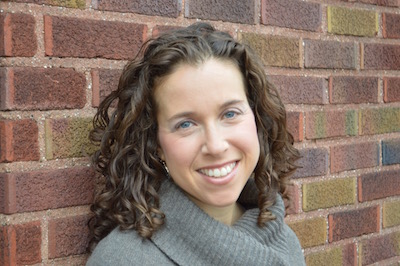Witness Theater brings together Holocaust survivors and students for a year of telling and listening, creativity, collaboration and self growth. Survivors share real-life experiences and real-world lessons within a therapeutic theater process focused on intense learning about history and humanity, and the development of critical life skills.
Entry Narrative
In this pivotal moment in history when the last generation of Holocaust survivors is dying, it is critically urgent that we gather eyewitness testimony and create the structure through which the survivor legacies will live on. (Trauma Conference presentation outline) However, today’s busy and technologically focused generation does not have many opportunities to interact with the elderly generation, nor do they have many opportunities to develop and exercise “real-world skills” such as listening, empathizing, responsibility, collaboration and trust.
The Witness Theater program brings together high school students and elderly Holocaust survivors in a year-long therapeutic theater process that fosters genuine relationships, develops interpersonal skills, and provides a sensitive framework for stories to be shared and passed on in an unforgettable way.
Program Year Overview: (Drama Therapy Conference powerpoint)
- High school students (video clip from a processing session) in the Witness Theater program meet weekly with a group of Holocaust survivors, spending time getting to know about their present lives as well as their past history.
- With the guidance of a Drama Therapist, the group spends the first 6-8 weeks (video clip from weekly sessions) developing trust and a cohesive dynamic. Only then do they begin to hear the stories from the Holocaust. Using drama therapy and therapeutic theater techniques, (photos from weekly sessions) the group leader encourages stories to be told, witnessed and responded to in a visually dramatic way, establishing a safe and contained environment for both the teller and listener.
- As the weeks progress and the stories are collected, the group leader begins to write a script (2018) for a public performance on Yom HaShoah. Once the script is finished, the group moves into the rehearsal phase; the survivors become the narrators of their past and the teenagers portray their younger selves. The group dynamic deepens throughout the rehearsal process; everyone supports each other towards the goal of a full scale professional production that involves music, choreography, costume and multimedia.
- The final production, (2018 video) performed multiple times for a collective audience of over 2,000 people, is the ultimate show of empathy. The students literally step into the shoes of the survivors to enact their stories of the past and to recognize the lives they rebuilt (2018 program notes). Audiences (2018 reflections) cry, laugh and witness history, and are inspired by the genuine relationships (video interviews of students and survivors) among the performers.
- After the shows are over and the group has celebrated its success and said their official goodbyes in the final session, (photos from final session) the relationships still continue. Students maintain their connections (student reflection) with the survivors and call, visit and invite them (reunion invitation) into their homes for holidays and family occasions.
- The entire experience is a gift – for the survivors who gain caring and meaningful relationships near the end of their lives, and for the students who gain life changing lessons (student reflection) and skills that will enable them to make a positive difference among people and within communities in the future.
Program Results:
As the Holocaust becomes a part of history, the Witness Theater program ensures that the survivor legacies live on and that today’s youth understands the importance of human bonding and empathy. More enduring than a book, a movie, or a lecture by or about a survivor, the intense and layered process of Witness Theater builds connections and relationships, securing empowering foundations for genuine understanding, respect and a desire to help. In this way, Witness Theater inspires all those involved to appreciate our common humanity and to live their lives with purpose and meaning.
Entrant Bio(s)
Sally Shatzkes is a Registered Drama Therapist and Licensed Creative Arts Therapist. Ms. Shatzkes has over a decade of work in the drama therapy field, innovating creative arts based counseling programs at the Yeshivah of Flatbush and spearheading creative approaches in Jewish education at multiple other institutions. Ms. Shatzkes piloted the first Witness Theater program in New York in 2012 at the Yeshivah of Flatbush Joel Braverman High School and continues to work as the lead Drama Therapist for the program, training other drama therapists to facilitate the program in different locations. Her work is the subject of a new documentary, Witness Theater by noted filmmaker Oren Rudavsky, set to be released in the spring. Ms. Shatzkes is a noted lecturer and educator and has been featured in The Wall Street Journal, The New York Daily News, The Jewish Week, and The Forward, among other publications. In 2017, The Jewish Week recognized Ms. Shatzkes as one of 36 Under 36 for her work with Witness Theater. For more information please visit her website, Sallygrazishatzkes.com

This entry has been tagged with the following terms: